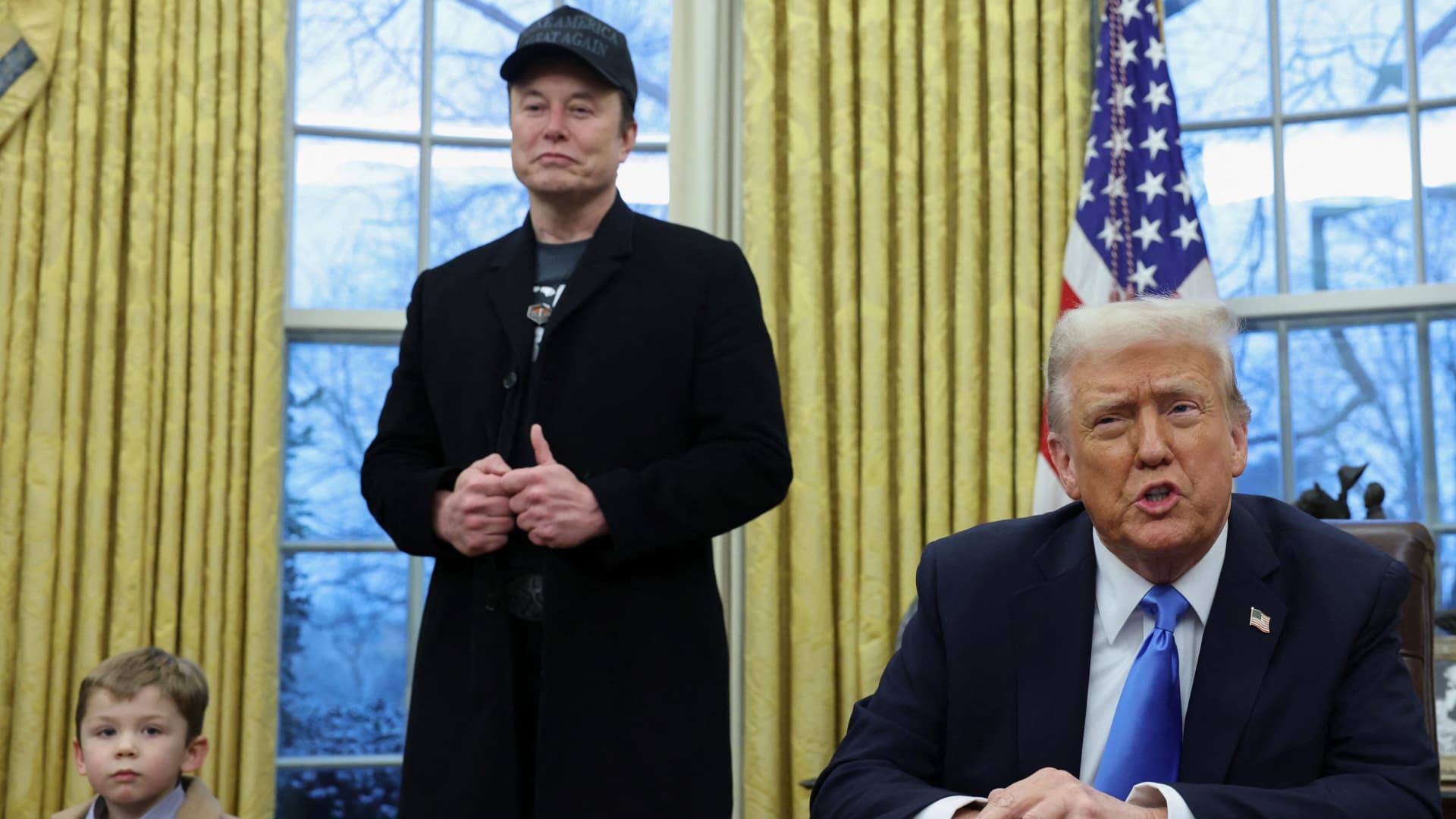
Elon Musk Discusses Tax Refund Proposal with President Donald Trump
On February 11, 2025, during a meeting in the Oval Office, U.S. President Donald Trump was seen alongside Elon Musk and Musk’s son, X Æ A-12, signaling a significant collaboration in the future of American tax policy.
Elon Musk, the CEO of Tesla and SpaceX, announced on Tuesday his intention to discuss a proposal with President Trump regarding tax refund checks for Americans. This initiative aims to utilize funds generated through the efforts of the Government Efficiency Advisory Group, which Musk leads.
In a post on X (formerly Twitter), Musk expressed his commitment to "check with the President" in response to a suggestion by James Fishback, CEO of Azoria. Fishback proposed that Trump might issue a so-called "DOGE Dividend," providing tax refunds funded by savings realized through a cost-reduction campaign associated with DOGE.
Musk has articulated a broader goal to decrease federal spending by $2 trillion from a staggering annual budget of approximately $6.75 trillion, which closed on September 30 of the previous fiscal year. If Musk’s goal is achieved, Fishback estimates that 20%, or $400 billion, could be redistributed to taxpayers, translating to about $5,000 for each household.
Fishback’s proposal emphasizes accountability in governance, stating, “When a breach of this magnitude occurs in the private sector, the responsible party typically offers refunds due to their failure to deliver as promised. It’s time for the federal government to follow suit and return funds to taxpayers based on the revelations brought forth by DOGE.”
During the COVID-19 pandemic, stimulus checks sent to millions of taxpayers bore Trump’s signature, marking a historical first for presidential involvement in IRS disbursements, as reported by the Associated Press.
According to DOGE, its initiatives have purportedly saved around $55 billion; however, recent investigations suggest that the true savings may be significantly lower. A report from Bloomberg unveiled that DOGE’s website accounts for only $16.6 billion of this claimed figure, while the New York Times highlighted an erroneous citation of an $8 billion saving on a federal contract, which was actually valued at only $8 million.
In addition to these financial dialogues, many of DOGE’s cost-saving measures are currently facing legal scrutiny. Nevertheless, a federal judge recently denied a motion to prevent DOGE from accessing federal agencies’ computer systems or executing furloughs of government workers while these legal challenges are pending.
Stay updated on this unfolding story as Musk and Trump explore new avenues for fiscal reform and taxpayer benefits.









